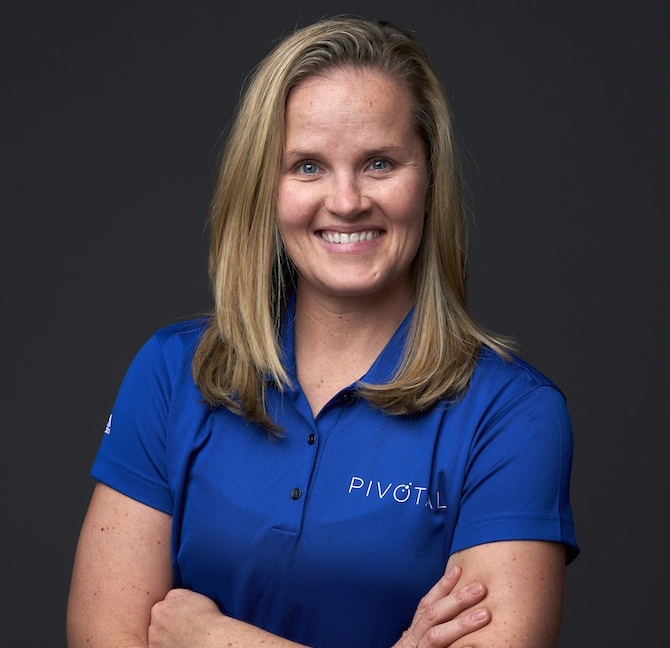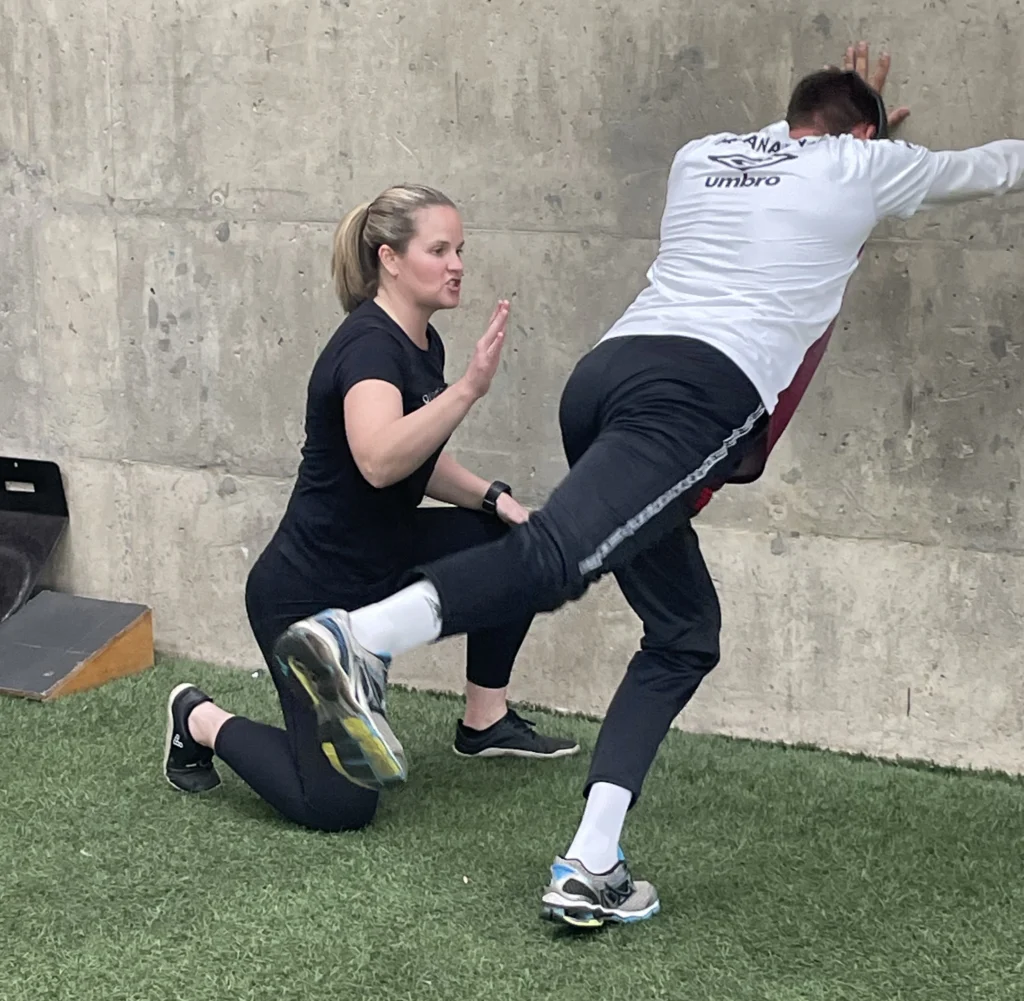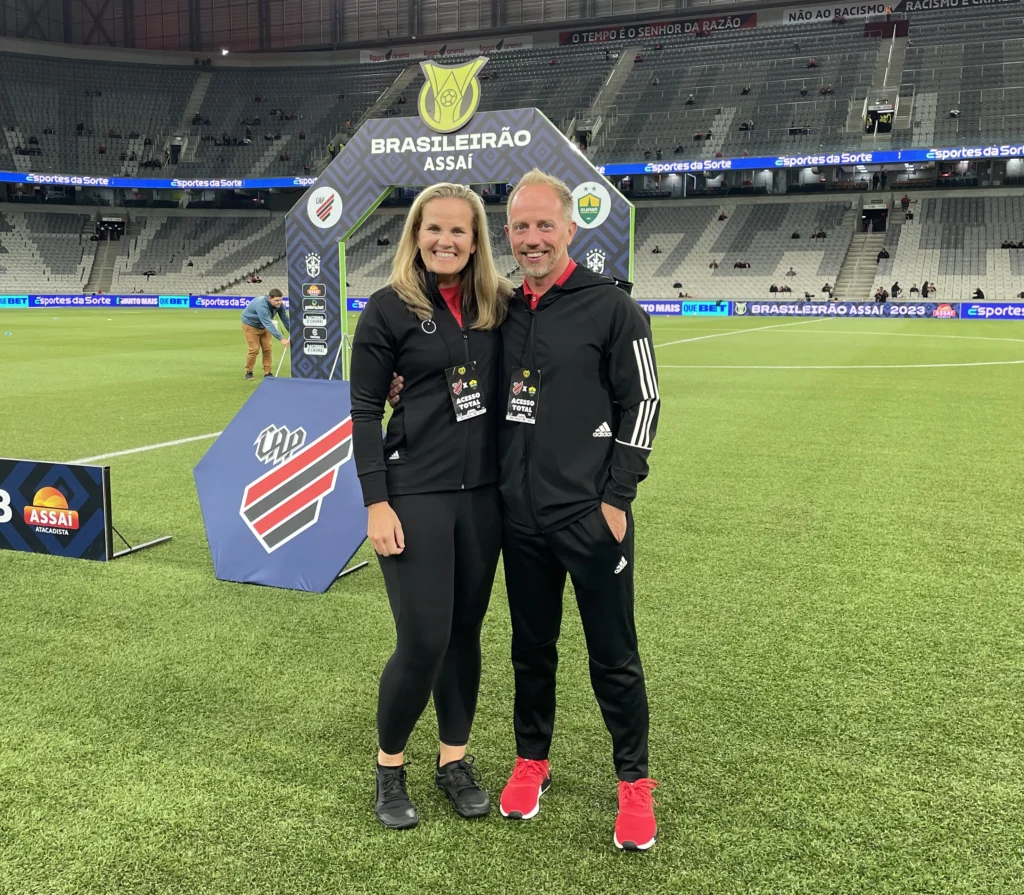Trainer Talks: Hayley Hollander on Empowering Human Potential

Hayley Hollander co-founded Pivotal to unlock human potential through coaching, education and consulting services
As an international coach and educator with over 20 years of experience empowering thousands worldwide, Hayley Hollander is a heavyweight in fulfilling human potential. Her leadership of a $90 million athletic club expansion and many other roles have cemented her expertise.
Today, Hollander drives transformation through Pivotal, the coaching, education and consulting company she co-founded with Scott Hopson to help people and organizations gain clarity of purpose and develop mastery within their skill sets.
She holds credentials ranging from EXOS Performance Specialist to Gray Institute GIFT Graduate. An IDEA Personal Trainer of the Year finalist, Hollander creates life-changing experiences for her diverse clientele, from pro athletes to kids.
Athletech News spoke to Hollander about her precise, empathetic approach to personal training, the challenges inherent in training professional athletes and how the fitness industry can help solve the youth health crisis.
This conversation has been lightly edited for clarity and length.
Athletech News: What were some of the challenges and triumphs you experienced while serving as fitness director at Midtown Athletic Clubs and overseeing a $90 million expansion project?
Hayley Hollander: The biggest challenge, metaphorically speaking, was like changing the tire on a car while it’s still running. We had to transform a facility from 35,000 square feet of fitness space into two buildings at Midtown Chicago. We had to close one building, reducing the fitness space to only 5,000 square feet, to accommodate 3,500 members at the time, and still run at 100% capacity with only 50% space.
There were a lot of challenges, including space, staff, and equipment. I had to design programming and opportunities for members to participate with coaches in a way that accommodated their interests, the space, and my staff. We eventually expanded to 400,000 square feet. Renovating and expanding the club meant closing and opening new spaces while under construction. It was a moving target.
My biggest triumph was successfully launching new programs during this stressful time. Another triumph was hiring new staff and training, educating, and keeping them busy. The outcome was that we made a profit while under construction, and at no point did we go into the red.
ATN: Can you elaborate on the founding principles of Pivotal and how the brand reflects your personal vision for the fitness industry?
HH: Pivotal was founded with a sole mission and vision to empower human potential. The name was chosen for its significance – “pivotal” is defined as a critical or vital moment. For many, a pivotal moment can change perspectives and future actions. We applied this concept to the movement space, where to pivot means moving to more than one location before returning to the starting position. Our goal is to help people combine all the key ingredients they need to empower potential in themselves and others.
Pivotal has three main avenues to empower potential. The first is coaching, which includes one-on-one clients, teams, and athletes. Second is education, where we offer live and online training for professionals worldwide, ranging from personal trainers to physical therapists and small business owners. Third, our consulting services are tailored to each client’s needs. Our consulting work varies, from creating innovative learning and training systems and curriculums, to empowering teams to fulfill their potential and drive productivity through leadership development.

ATN: What motivated you to help develop the Youth Movement Certification, and what impact do you hope it will have?
HH: This is a huge passion project that Pivotal is launching in 2024. Our tipping point came from learning about the current state of youth movement and recognizing the urgent need for change. Alarmingly, for the first time in history, our youth are expected to have a lower life expectancy than their parents. Movement, we believe, has an unparalleled influence on the cognitive, social, emotional and biological development of youth.
Currently, one in three children are overweight or obese, a number that has quadrupled since 1980. The reasons for this decline include limited access and opportunity, and negative influences from coaches and parents, leading to a high dropout rate from sports. This, combined with sports specialization, leads to injury risk due to excessive practice, competition and a lack of proper training techniques or understanding of scientific principles. The Youth Movement Certification is designed to change this paradigm.
ATN: What challenges and opportunities have you encountered while consulting for professional soccer teams in Brazil?
HH: In the fitness space, especially as a personal trainer, one often overlooks the intricacies of training athletes in a specific sport. Our work with a professional soccer team in Brazil involves collaborating with performance and strength and conditioning coaches. We focus on enhancing their knowledge and skill sets to deliver programming relevant to their phase and training volume. These coaches work with players ranging from under 10s to the professional teams, both men and women.
Our consultation often revolves around programming different workouts for various phases of the soccer season, which is 11 months long, from late January to early December. During this period, teams may play up to 72 games a year, which means about two to three games a week. Given the multiple competitions they participate in, like professional leagues, Olympics, and world championships, it’s a complex scenario.

ATN: In a competitive industry like personal training, what strategies can trainers use to differentiate their services and programs from others?
HH: To stand out in personal training, I divide my approach into two key areas: experience versus programming.
Focusing on the experience is crucial because people remember how you made them feel, not necessarily what you said or did. As a personal trainer, it’s about creating a connection with your client. It’s understanding where they are emotionally and physically when they walk through the door, and then crafting a session that elevates them from that initial state to feeling great by the end. It’s about building rapport, recognizing their current state, and guiding them to where they need to be.
The key is to align the session with their goals. If someone’s aim isn’t to run a marathon, you wouldn’t have them run on a treadmill. It’s about understanding their goals and creating an experience that aligns with these, rather than just focusing on the right exercises, sets, reps, or equipment. Clients need to feel valued, understood and better than when they first walked in.



